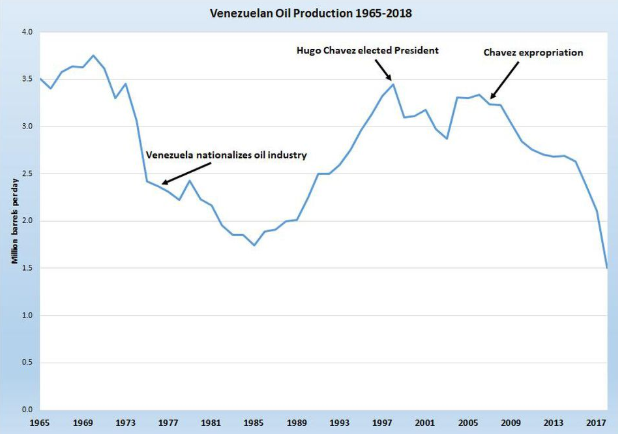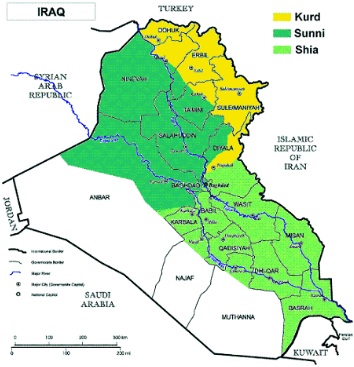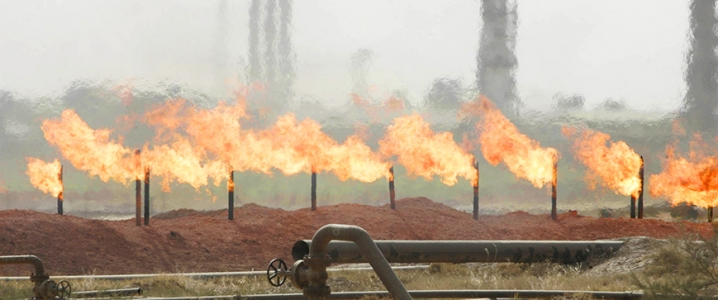The political turmoil in Venezuela seems to be a never-ending story. Since Hugo Chavez’ presidency, the Latin American country has been the center of attention during several crises. This time, however, the situation is more severe as the country is exhausted both politically and economically. The reconstruction of the country’s energy sector is going to be difficult due to the rampant corruption that has devastated the industry. Venezuela’s situation is somewhat comparable to Iraq’s after 2003, but while Bagdad succeeded in revamping its energy sector, Caracas will face many more challenges.
The possibility of change
Venezuela seems to stumble from one crisis into another. The most recent one, however, has the potential of bringing much-needed change to the Latin American country. By declaring himself interim-president, opposition leader Guaidó has become a rallying point for both Venezuelans and governments that oppose Maduro’s regime. The current situation is the dramatic culmination of mismanagement and corruption that has led to a humanitarian crisis during which millions have fled the country.
The dire situation of the population and the recognition of Guaidó as interim-president by several governments has put severe pressure on President Nicholas Maduro to respond. Even long-time ally Russia has hinted on changing its position by declaring that it expects Venezuela to honor its debt agreements meaning that it’s open to some change as long as Moscow gets its due. President Maduro has already shown himself ready for a dialog with the opposition.
The dire state of PDVSA
Venezuela is one of the founding members of OPEC and one of the early pioneers of the oil industry. The country also holds the world’s largest proven oil reserves. However, systematic mismanagement and corruption have led to a sharp decline in production. When Hugo Chavez was elected president in 1998, the country produced on average 3.5 million barrels per day. Production has decreased to 1.1 million, and without further investment of $20 billion the downward spiral will continue. Related: Oil Prices Drop After Touching 2019 High
Political turmoil, corruption, and nationalization have led to an exodus of foreign energy companies. The mismanagement of oil assets and insufficient investments have further decreased production. Venezuela’s subsoil characteristics require constant intervention to maintain production. The extraction of oil in the Orinoco region is labor and equipment intensive. Not just upstream operations are affected, refineries are facing huge maintenance problems, and of the four refineries in the country, only one is operational, leading to cripping fuel shortages.
Most commentators see the army as a crucial factor in what is increasingly looking like a transition of government. The current regime, however, has assigned the most import positions in PDVSA to high ranked security personnel who siphon off revenue to their lower ranking soldiers. Therefore, a significant part of the army has an interest in maintaining the status quo.
Venezuela vs Iraq
Any economic future of Venezuela is strongly tied to its energy industry. The reconstruction of infrastructure and reorganization of PDVSA will require significant investment and time. An obvious example could be Iraq. After years of war, sanctions, and regime change, Bagdad has achieved a remarkable increase in production. However, the situation in Venezuela is different from that of Iraq on several fronts, making a similar rise in oil production unlikely. Related: Why Are Asian Spot LNG Prices Plunging?

(Click to enlarge)
Significant resources were invested in revitalising the energy industry after the war of 2003 and the deposing of Saddam Hussein. First, international oil companies were invited to increase production which has resulted in nearly all major oil companies being represented in Iraq. Second, the Arab country's primary production area is concentrated near the coast in the southeast in Shia dominated areas. Nearly 75 percent of Iraq's oil is produced in the area. The fight against IS was in the Sunni dominated areas to the north decreasing risks associated with the fighting. Also, the Ba'ath party, which dominated Iraqi public life during Saddam's reign, was lifted after 2003.

Although Iraq was devasted by war, reconstruction provided the opportunity to create new institutions with a ruling elite which was not bound to the interests of the previous regime. Assuming that regime change occurs in Venezuela, it is highly unlikely that the bureaucracy and specific interest groups such as the army will be replaced or disappear. Revitalising Venezuela's energy industry will be a long and arduous task requiring significant investment in time, effort, and money as well as fighting corruption.
By Vanand Meliksetian for Oilprice.com
More Top Reads From Oilprice.com:
- ExxonMobil Leads In Exploration Successes In 2018
- The World’s Most Extraordinary Oil & Gas Company
- The Next Big Threat For Oil Comes From China


















